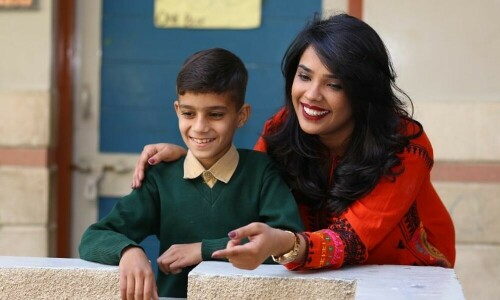
Close to 2010, following the Global Financial Crisis of 2008-2009 and the ensuing economic downturn, middle-class Pakistanis began to lose their unwavering trust in higher education. By 2011, over 50 per cent of graduates and post-graduates found themselves without work or in jobs that didn’t fully utilise their qualifications. While a bachelor’s (or master’s) degree was once seen as a surefire path to success for some, it didn’t hold the same promise for many others.
The economy recovered to an extent, and the widespread discussion on this topic dwindled, only to resurface in the wake of unprecedented Covid-19. This time around, the reckoning for college degrees has been more significant, and it might also prove to be longer-lasting.
The cost of obtaining a private degree is exorbitantly expensive. However, the worth of a higher education may no longer align with its previous standing. Undergraduate programmes’ yearly fee ranges from Rs500,000 to Rs1.5 million or more (based on the field of study and reputation of the institution).
Additional costs include registration fees, examination fees, laboratory fees, and library fees. It is important to consider other expenses, such as accommodation, transportation, textbooks, and personal living expenses, when planning a budget for studying in Pakistan.
Pressing inflation has led many 17–20-year-olds to resort to online jobs to earn extra bucks, only to end up making it a full-time, professional engagement
The data indicates that it’s not that higher education lacks value but rather that individuals are now prioritising their careers and the pursuit of meaningful work over it. People aspire to it as an option but not as the sole focus. They want varied opportunities offering a broader spectrum of potential outcomes.
The Pakistani middle-class dream of pursuing a respectable status that tags along with a higher education has gone from pursuing an MBA to pursuing more pragmatism that entails practical, tangible skills such as managing one’s finances, thinking critically to problem-solve and making decisions, and demonstrating character.
Higher education is a necessary and valuable pathway for many careers; it can help learners expand their exposure and explore different identities. It can be a life-changing experience for individuals and families, particularly for first-generation university students. Because primary and secondary education equips all students with the readiness to pursue higher education.
However, there are structural reasons behind the growing demand for skills-based careers in our nation. A notably competitive job market has made employers less insistent on the need for degrees. This trend initially began in the tech industry, as exemplified by figures like Peter Thiel from PayPal, who encouraged people to forgo college in pursuit of success.
Pressing inflation has led many 17–20-year-olds to resort to online jobs to earn extra bucks, only to end up making it a full-time, full-of-freedom professional engagement that has nothing to do with the depreciating rupee, rendering the entire declining economic dynamics irrelevant to their earnings and livelihood mainly because these skills-based jobs do not necessitate a degree anymore.
Skills such as data analytics, dashboard and user experience designing, and running a YouTube or WhatsApp channel are learnt online, leading to income generation and income perpetuity early on, regardless of a graduate degree.
This movement has expanded to encompass the social and digital media sector, making college degree requirements immaterial. According to a Harvard Business Review report from last year, an estimated 1.4m jobs will be accessible to individuals without college degrees in the next five years (“Jobs do not require four-year college degrees. Employers do,” the report emphasises, highlighting the changing perspectives of employers).
Former US president Barack Obama has also been discussing the idea of “unnecessary college degrees” on Twitter.
The medical sector has been impacted in equal measure. Many doctors (especially females unable to pursue the medical field for any reason) are unwilling to go through the mental, emotional and physical pressures surrounding the profession. They have resorted to virtual methods of earning an income that requires a laptop and internet connection, don’t entail corporate mania or office politics, and have no connection to their education.
The options for learning and training have also expanded compared to the past. Prior to the pandemic, Coursera was enrolling approximately 2m new learners every quarter. However, since the pandemic, this number has risen to 5m per quarter, resulting in a total of 113m registered learners on the platform.
It entails courses on computer science, the pursuit of happiness, and skill development and academic training tailored for businesses and degree programs. According to Google’s internal search data, in 2022, over 50pc of the searches related to degrees were focused on nontraditional educational pathways.
Covid-19 left us with, apart from an unsatisfactory glimpse into the inner workings of education, a reassessment and reconfiguration of priorities. The question arises: What is the purpose of education? If the aim is to prepare individuals for meaningful careers and fulfilling lives, then an exclusive race toward college accessibility, limited to the privileged few, is not a sustainable path forward.
The college landscape may change as the economy does. In today’s world, young people are grappling with an unprecedented mental health crisis brought about by a combination of Covid-19, environmental concerns, and the widespread use of mind-altering technology. It is essential to provide them with opportunities and avenues to realise their future selves, and this should include the option of a college degree without overemphasising its importance.
The writer is the Head of Content at a communications agency.
Published in Dawn, The Business and Finance Weekly, October 9th, 2023


































